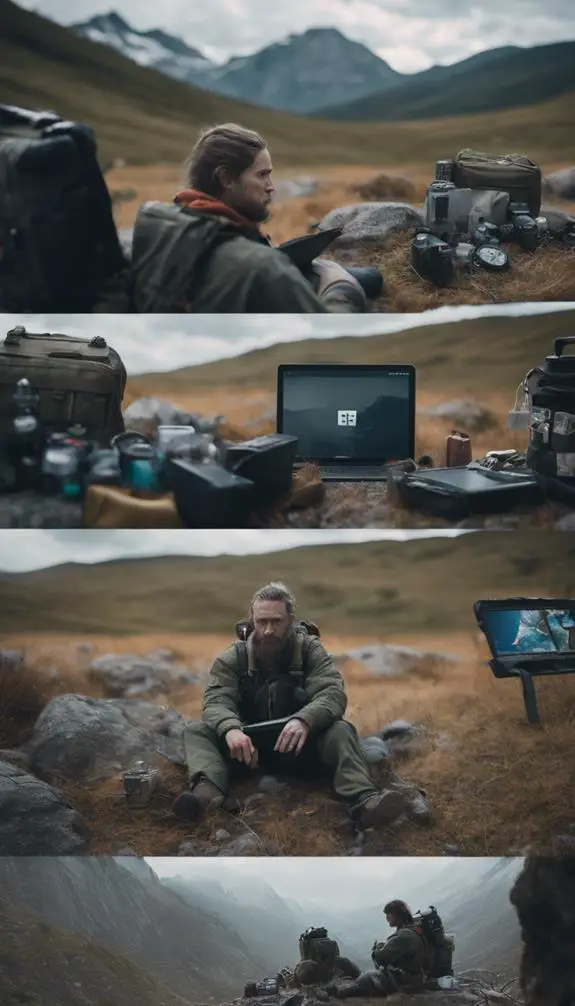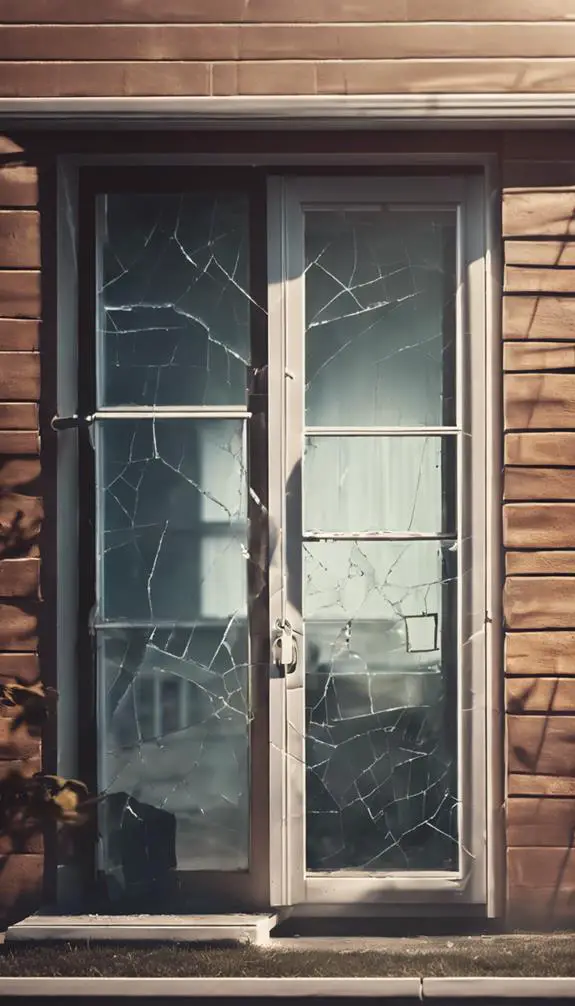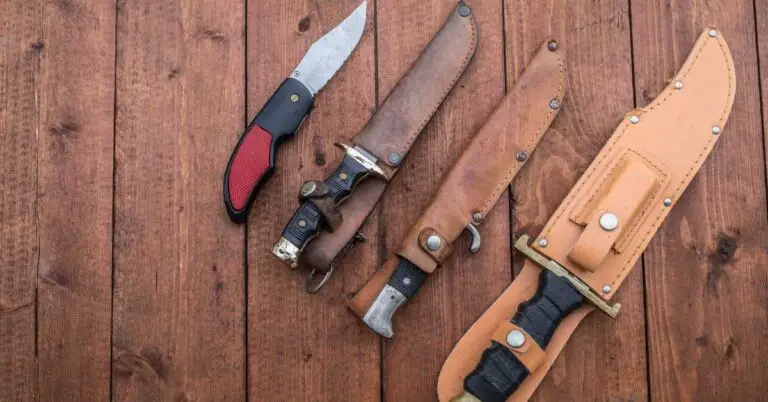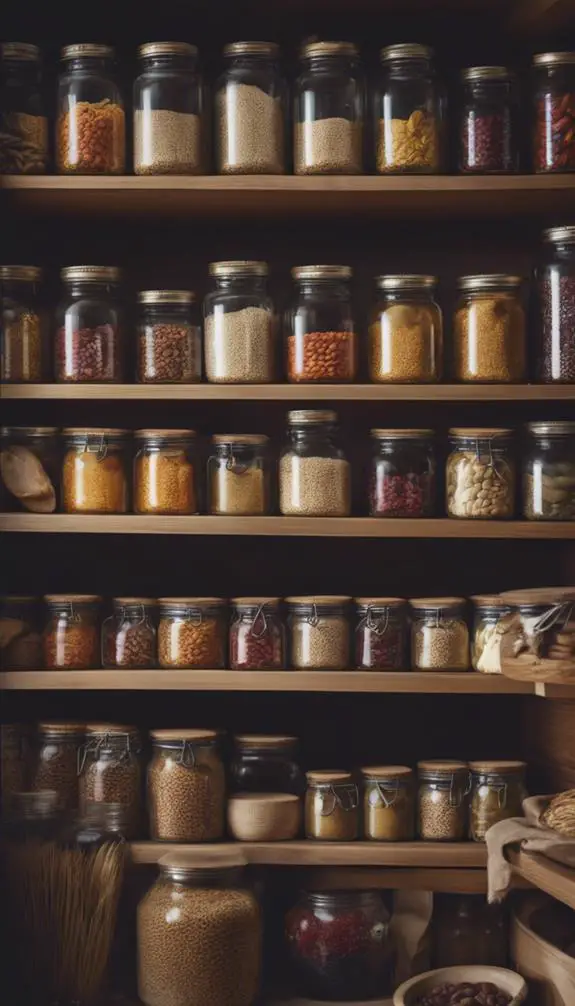As you start to build your emergency preparedness plan, you're probably wondering where to turn for reliable information. With so many YouTube channels dedicated to prepping, it can be overwhelming to sift through the noise. But, what if you had a trusted guide to point you in the right direction? You're about to discover the most informative and engaging channels that'll help you stay ahead of the curve, covering everything from wilderness survival to food storage and self-defense.
Summary
- Channels like Active Self Protection and Personal Defense Network offer expert guidance on self-protection and personal safety.
- YouTube channels focused on food storage and preservation, such as those on dehydration and canning, provide valuable information.
- Wilderness survival experts on YouTube teach essential skills like primitive shelter building and wilderness first aid.
- Channels on off-grid living and homesteading share knowledge on generating power, collecting water, and growing food sustainably.
- Channels like Urban Prepper and City Survival offer unique skills and strategies for surviving in urban environments.
Survival Skills and Strategies
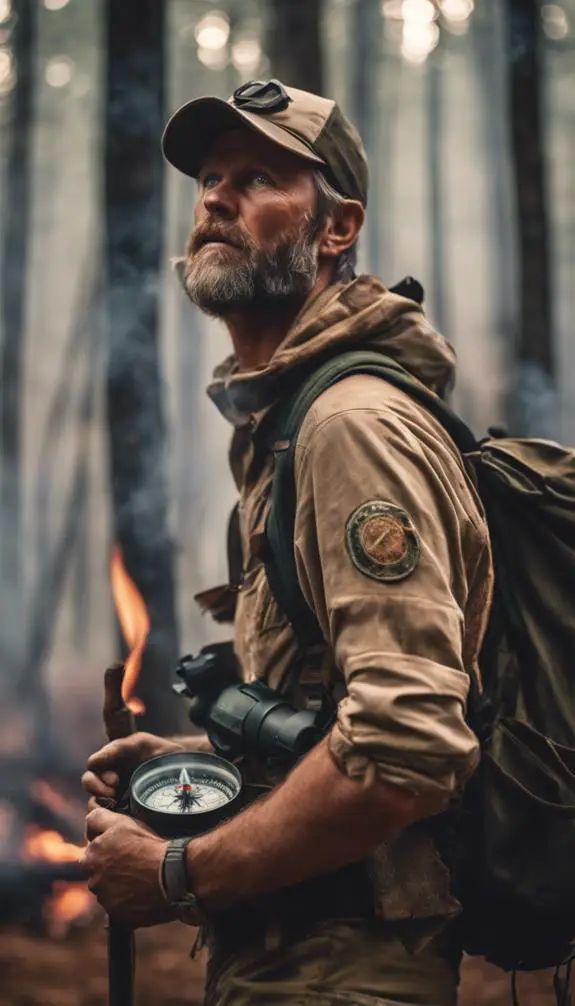
When venturing into the world of prepping, developing essential survival skills and strategies can mean the difference between life and death.
You'll need to master wilderness navigation, learning to read maps, use a compass, and identify landmarks to find your way in the wilderness.
A strong survival mindset is also vital, allowing you to stay focused and calm in high-pressure situations.
You should practice situational awareness, learning to assess risks and respond accordingly.
Additionally, learning basic first aid, shelter building, and self-defense techniques will increase your chances of survival.
Food Storage and Preservation
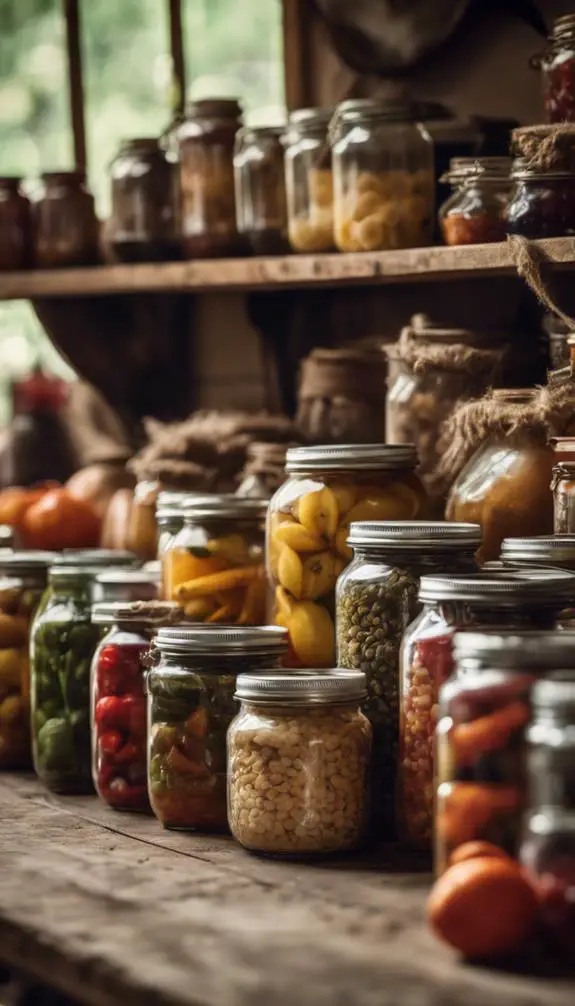
In the aftermath of a disaster, having a reliable food supply can be a lifesaver.
You'll want to learn about food storage and preservation techniques to guarantee you have a steady supply of nutritious food.
Food dehydration is a great method for preserving fruits, vegetables, and meats, and can be done at home with minimal equipment.
When it comes to canning, safety is paramount – you'll need to follow strict guidelines to avoid spoilage and foodborne illness.
Watching YouTube channels focused on food storage and preservation can provide you with the knowledge and skills you need to stockpile food safely and effectively.
Self-Defense and Personal Safety

As chaos erupts around you, prioritizing self-defense and personal safety becomes crucial to surviving a disaster.
You must be prepared to protect yourself and your loved ones from potential threats. That's why learning self-defense techniques and strategies for personal security is imperative.
You'll want to know how to assess risks, avoid dangerous situations, and respond appropriately when confronted.
Channels like Active Self Protection and Personal Defense Network offer expert guidance on self-protection, from basic techniques to advanced tactics.
Wilderness Survival Experts
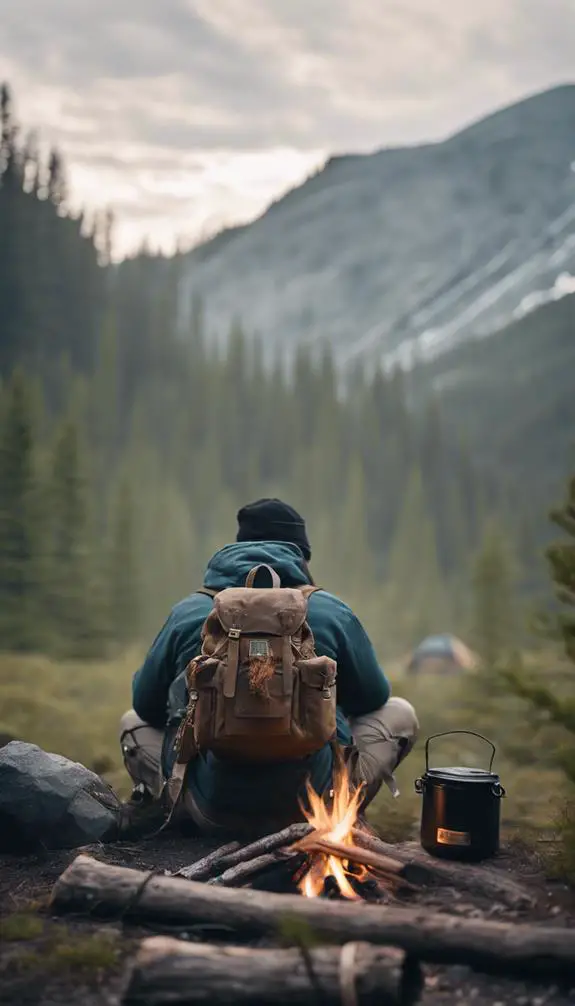
When you're preparing for the great outdoors, you'll want to learn from wilderness survival experts who can teach you essential skills like primitive shelter building, which can mean the difference between life and death in extreme weather conditions.
These experts will also show you wilderness first aid techniques to treat injuries and prevent infections when medical help is far away.
Primitive Shelter Building
Beyond the treeline, where dense foliage gives way to harsh winds and unforgiving rain, your ability to craft a primitive shelter becomes a matter of life and death.
You'll need to know how to build a shelter that protects you from the elements. Debris shelters, made from fallen branches and leaves, can provide excellent insulation.
Lean-tos, constructed from sturdy limbs and a tarp, offer a quick and easy solution. When building, consider the terrain, wind direction, and accessibility.
Look for natural formations like caves, rock overhangs, or hollowed-out logs to use as a base. With practice and patience, you'll be able to construct a shelter that'll keep you safe and dry in even the most extreme conditions.
Wilderness First Aid
You've crafted a sturdy shelter to protect yourself from the elements, but now it's time to focus on another critical aspect of wilderness survival: treating injuries and illnesses.
When it comes to wilderness first aid, it's vital to know how to clean and dress wounds properly to prevent infection.
You should also know how to identify and treat snake bites, which can be deadly if not addressed promptly.
A good wilderness first aid expert will teach you how to use natural remedies, like plant-based antiseptics, and improvise with available materials.
Off-Grid Living and Homesteading

Your rustic cabin nestled among the trees is more than just a romantic getaway; it's a symbol of independence and self-sufficiency.
You're not just escaping the hustle and bustle of city life, you're taking control of your own life. Off-grid living and homesteading are about creating a sustainable lifestyle that's free from the grid's constraints.
You'll learn how to generate your own power, collect and conserve water, and grow your own food.
Homesteading communities offer a sense of camaraderie and support, where like-minded individuals share knowledge and resources.
Off-grid homes can range from recycled shipping containers to earthship dwellings, offering a unique and fulfilling way of life.
Budget-Friendly Prepping Tips

As you work towards achieving independence through off-grid living and homesteading, it's equally important to prioritize preparedness without breaking the bank.
You can't afford to overspend on prepping supplies, so focus on budget-friendly essentials. Start by adopting frugal living habits, like repurposing household items and reducing waste.
When it comes to budgeting essentials, prioritize items like non-perishable food, water storage, and first aid kits. Consider shopping during sales, using coupons, and buying in bulk to stretch your dollar.
Natural Disaster Preparedness
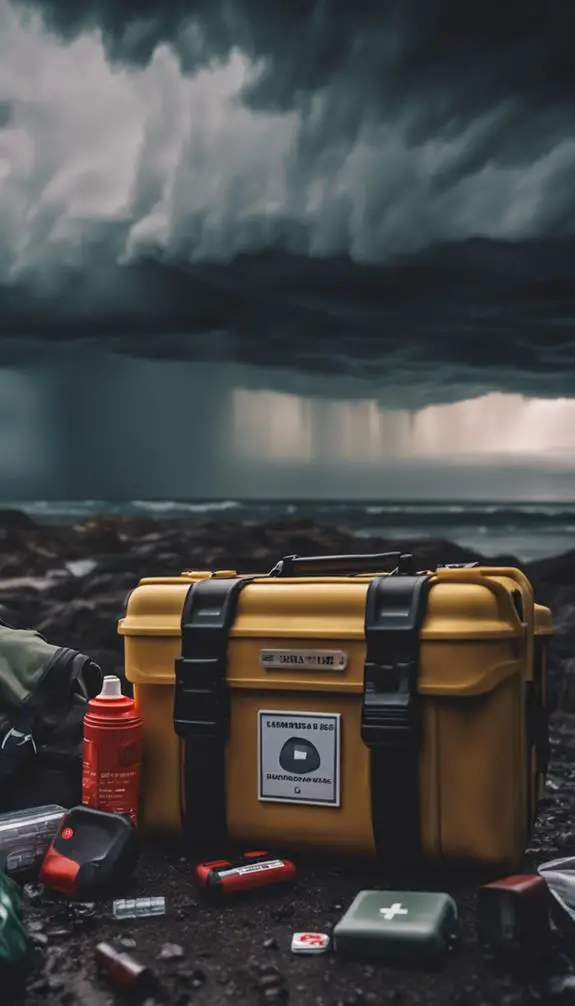
Every year, dozens of natural disasters strike across the globe, leaving devastating destruction and disrupting daily life.
As someone who values freedom, you know it's essential to be prepared. When it comes to natural disaster preparedness, you need to think ahead.
Flood preparedness is key, especially if you live in a flood-prone area. Make sure you have a plan in place, including a safe evacuation route and a emergency kit with essentials like food, water, and a first aid kit.
Hurricane readiness is also imperative, especially if you live in a hurricane zone. Board up windows, trim trees, and have a plan for alternative power sources.
Urban Prepping and City Survival

As a city dweller, you face unique challenges when it comes to prepping and survival, from limited storage space to reliance on public services.
To thrive in an urban environment, you need to develop essential survival skills, such as finding and purifying water, traversing through crowded streets, and staying safe in high-rise buildings.
City Living Challenges
When disaster strikes, the urban landscape can quickly transform into a treacherous terrain, making city living challenges a harsh reality for those unprepared.
You face unique urban threats, such as crowding, limited resources, and increased crime rates. City dangers like riots, looting, and infrastructure failures can also put your safety at risk.
As a city dweller, you're more reliant on public services, which can be disrupted or unavailable during emergencies. You must consider these challenges when preparing for disasters, taking into account your specific urban environment and the potential risks that come with it.
Urban Survival Skills
Resilience is the backbone of urban survival, and mastering essential skills can mean the difference between life and death in a crisis.
You need to develop urban navigation skills to move undetected through the city, using alleyways, side streets, and rooftops to evade danger.
Urban camouflage is also vital, as it allows you to blend in with your surroundings, making it harder for potential threats to spot you.
You should learn to identify safe zones, such as abandoned buildings or hidden areas, and know how to create a safe shelter in a crisis.
Emergency Evacuation Plans
Having a solid emergency evacuation plan in place is crucial to your survival in an urban crisis.
You need to identify emergency routes that lead you to safety, avoiding congested areas and potential danger zones. Conduct evacuation drills with your family to guarantee everyone knows the plan and can execute it efficiently.
Designate a meeting point outside the city where you can regroup and assess the situation. Identify alternative escape routes in case your primary route is blocked.
Stay informed about the crisis through a reliable communication system, such as a ham radio or a satellite phone. By having a well-rehearsed plan, you'll be better equipped to respond quickly and effectively in an emergency, increasing your chances of survival.
DIY Prepping Projects and Hacks
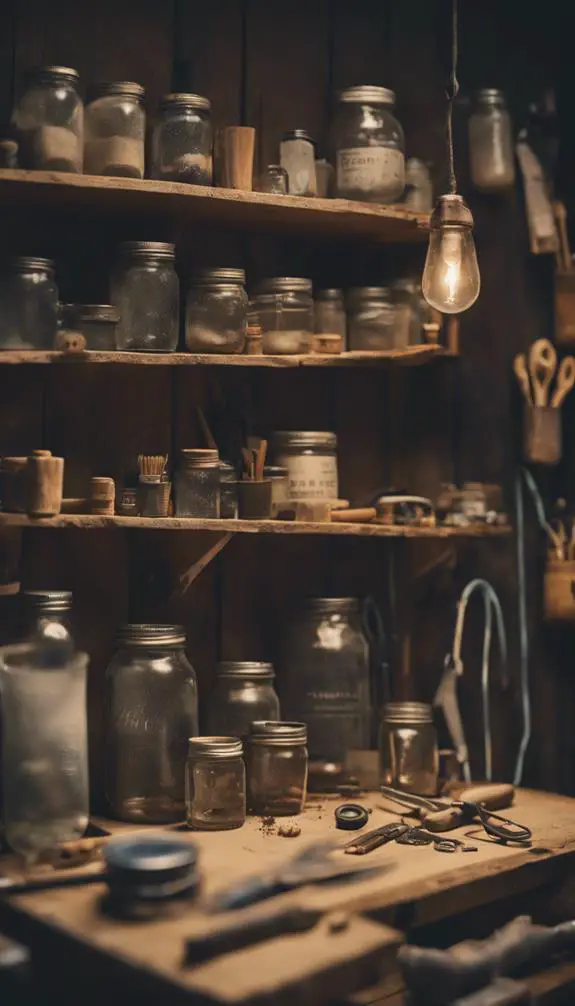
As you plunge into the world of prepping, you'll quickly realize that DIY projects and hacks can be a game-changer for your survival strategy.
By taking matters into your own hands, you can create effective solutions that are tailored to your specific needs. For instance, DIY water filtration systems can provide you with a reliable source of clean drinking water in the event of a disaster.
Emergency lighting hacks, such as using LED candles or creating a homemade lantern, can also prove invaluable during a power outage.
Prepping for Beginners and Newbies
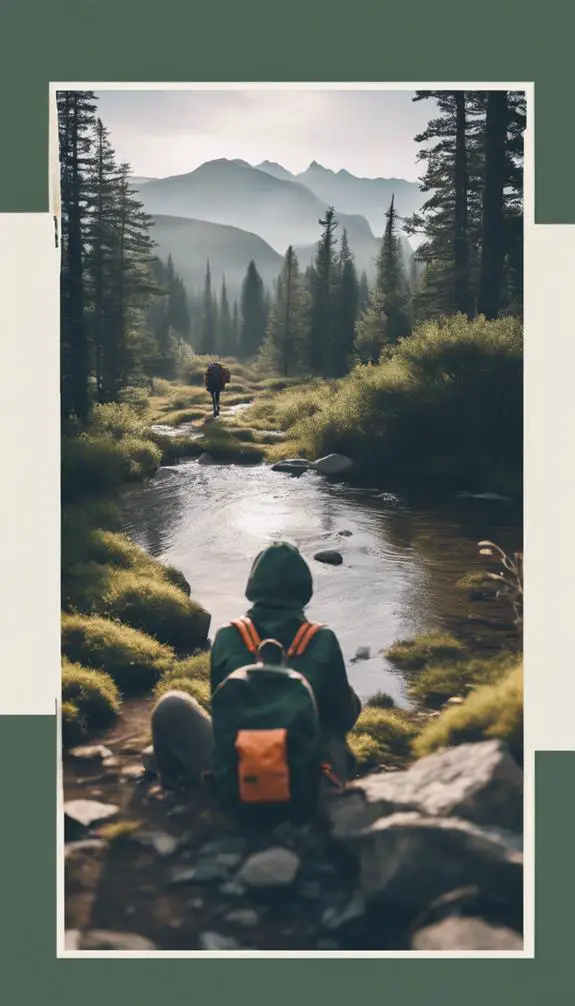
Many newcomers to the world of prepping often feel overwhelmed by the sheer amount of information available.
You're not alone if you're wondering where to start or what to prioritize. One common mistake beginners make is falling prey to prepper misconceptions, such as thinking you need to stockpile massive amounts of food or build a bunker.
In reality, prepping is about being prepared for realistic scenarios, not doomsday fantasies. As a beginner, crucially, focus on the basics, like creating a emergency fund, learning basic first aid, and building a 72-hour kit.
Don't make the mistake of trying to do too much too soon – start small, set achievable goals, and gradually build your skills and supplies.
Long-Term Food Storage Solutions

You're building a long-term food storage plan, and it's vital to ponder the methods you'll use to store your supplies, the essentials you should stockpile, and how to organize your pantry for maximum efficiency.
By choosing the right food storage methods, you'll keep your supplies fresh and protected from the elements.
Now, let's explore the key elements of a well-stocked pantry and how to keep it organized for easy access when you need it most.
Food Storage Methods
When it comes to long-term food storage solutions, having a solid understanding of food storage methods is crucial to guarantee your supplies remain safe and nutritious for consumption.
You need to know how to preserve food to maintain its quality and extend its shelf life. Dry canning and freeze drying are two effective methods to ponder.
Dry canning involves removing moisture from food to prevent bacterial growth, while freeze drying removes water content to preserve nutrients and flavor.
Both methods require proper equipment and techniques to safeguard your food remains safe to eat.
Stockpiling Essentials
Your emergency food supply should comprise stockpiling essentials that cater to your dietary needs and preferences, guaranteeing you're well-equipped to face any crisis.
When building your stockpile, consider the essential items you'll need to survive for an extended period. Focus on non-perishable food items that are nutrient-dense and easy to prepare.
Don't forget to include a water filtration system or stored water to certify access to clean drinking water. Be mindful of supply chains and store items that are less likely to be affected by disruptions.
Pantry Organization Tips
A well-organized pantry is the backbone of a successful long-term food storage system, allowing you to efficiently store and retrieve your stockpiled essentials.
To achieve this, you'll need a solid pantry inventory management system. This involves regularly tracking your stock, expiration dates, and storage conditions.
Implement a shelf labeling system to categorize and prioritize your supplies, making it easy to identify what you have and what you need. Label each shelf with categories like "Grains," "Canned Goods," and "Baking Supplies."
Within each category, organize items by expiration date, with the soonest expiring items front and center. By maintaining a tidy and organized pantry, you'll reduce food waste, save time, and guarantee you're always prepared for any situation.
Emergency Communication Systems

Emergency situations can strike at any moment, and having a reliable emergency communication system in place can mean the difference between life and death.
You need to stay connected with family, friends, and emergency services during a crisis. That's why you should consider investing in a two-way radio, preferably one that follows established radio protocols to guarantee clear communication.
In areas with no cellular service, satellite phones can be a lifesaver. They provide a reliable means of communication, even in the most remote areas.
Don't wait until it's too late; set up your emergency communication system today. With the right gear and a solid plan, you'll be better prepared to face any emergency that comes your way.
Prepping for Specific Emergencies

When natural disasters strike, it's essential to have a plan in place that caters to the specific needs of each scenario.
You can't just have a one-size-fits-all approach to emergency preparedness. For instance, flood preparedness requires a different set of strategies than preparing for a wildfire.
Tornado drills, for example, need to be practiced regularly so you know exactly what to do when a twister is heading your way.
By understanding the unique demands of each emergency, you can create a tailored plan that increases your chances of survival.
Don't wait until it's too late – take the time to learn about the specific threats in your area and develop a plan that addresses them head-on.
FAQs
How Do I Balance Prepping With Daily Life and Social Responsibilities?
You balance prepping with daily life and social responsibilities by mastering time management, prioritizing goals, and allocating realistic chunks of time for prep tasks, ensuring you're prepared without sacrificing your freedom and relationships.
Can I Prep if I Live in a Small Apartment or Urban Area?
You can prep in a small apartment or urban area by adapting to urban challenges and finding small space solutions, like vertical gardening, compact storage, and creative uses for everyday items to maximize your prep potential.
Are There Any Prepping Communities or Groups I Can Join?
You can connect with like-minded individuals through online forums like Reddit's r/preppers or online social networks like Facebook groups dedicated to prepping, where you'll find valuable resources, discussions, and local meetups to expand your prepping community.
How Do I Prep for Pets and Other Animals in My Household?
You'll want to prep a pet emergency kit with supplies like food, water, and meds, and learn Pet First Aid skills to keep them safe; also, plan an Emergency Evasion route to guarantee a quick escape with your furry friends by your side.
Is Prepping Only for Extreme Emergencies or Daily Life Disruptions?
You're not just prepping for catastrophic events, but also for daily life disruptions. Focus on building daily preparedness and everyday resilience to tackle power outages, job loss, or medical emergencies, giving you freedom to thrive in any situation.
Conclusion
You've now got a thorough guide to the best prepping YouTube channels. By tuning in, you'll gain valuable knowledge on survival skills, food storage, self-defense, and more. Whether you're a seasoned prepper or just starting out, these channels offer expert advice to help you prepare for the unexpected. Stay informed, stay prepared, and stay safe – the world can be an unpredictable place, but with these channels, you'll be ready.

